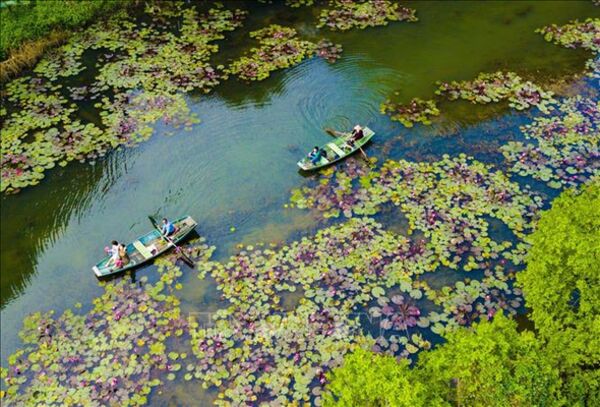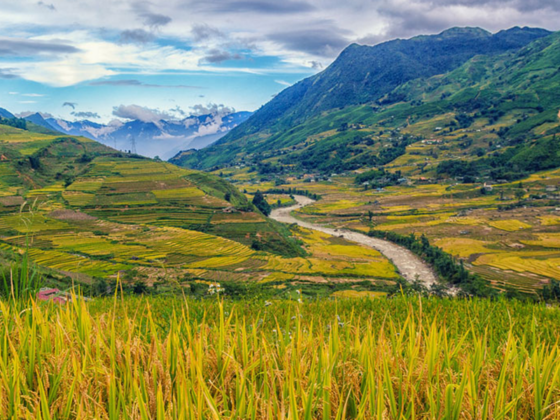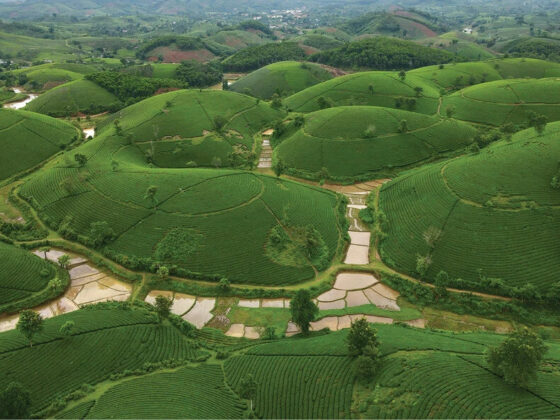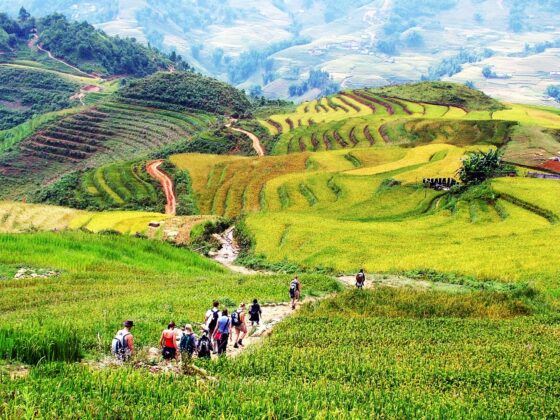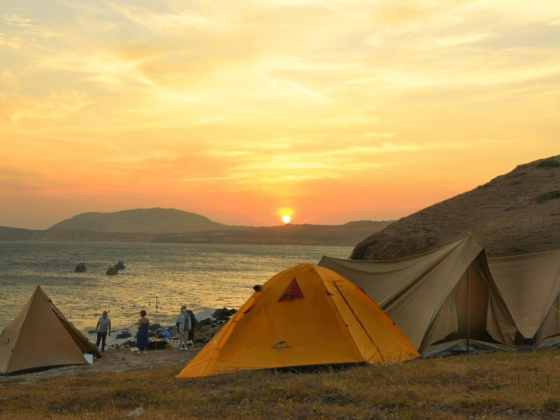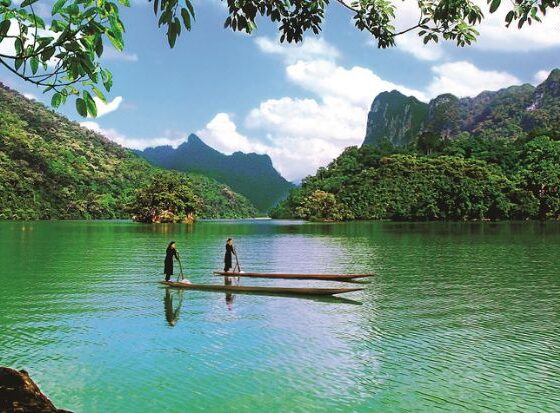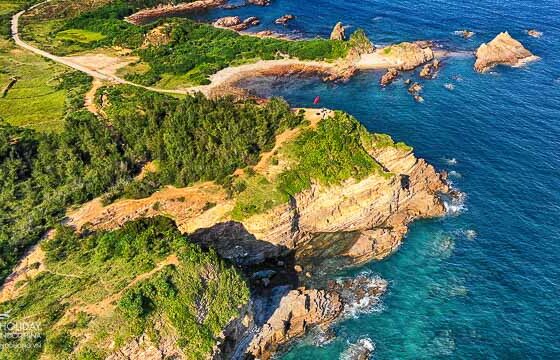Table of Contents Show
✍️ AI is summarizing:
Vietnam, with its stunning landscapes and rich biodiversity, has become a beacon for ecotourism in Southeast Asia. As travellers increasingly seek sustainable options, the country offers a variety of Vietnam ecotourism initiatives that not only showcase its natural beauty but also promote conservation and support local communities.
Here, we explore some of the most impactful examples that exemplify responsible travel and environmental stewardship.
Read more interesting posts here:
- Eco-Chic Escapes: A Guide to Sustainable Glamping in Vietnam
- Beyond the Boardroom: A Guide to Fun Outdoor Team Building Activities
- More Than a Rule: How the Leave No Trace Principles Reflect Who We Are
Mekong Delta: Community-led river tours and other Vietnam ecotourism initiatives
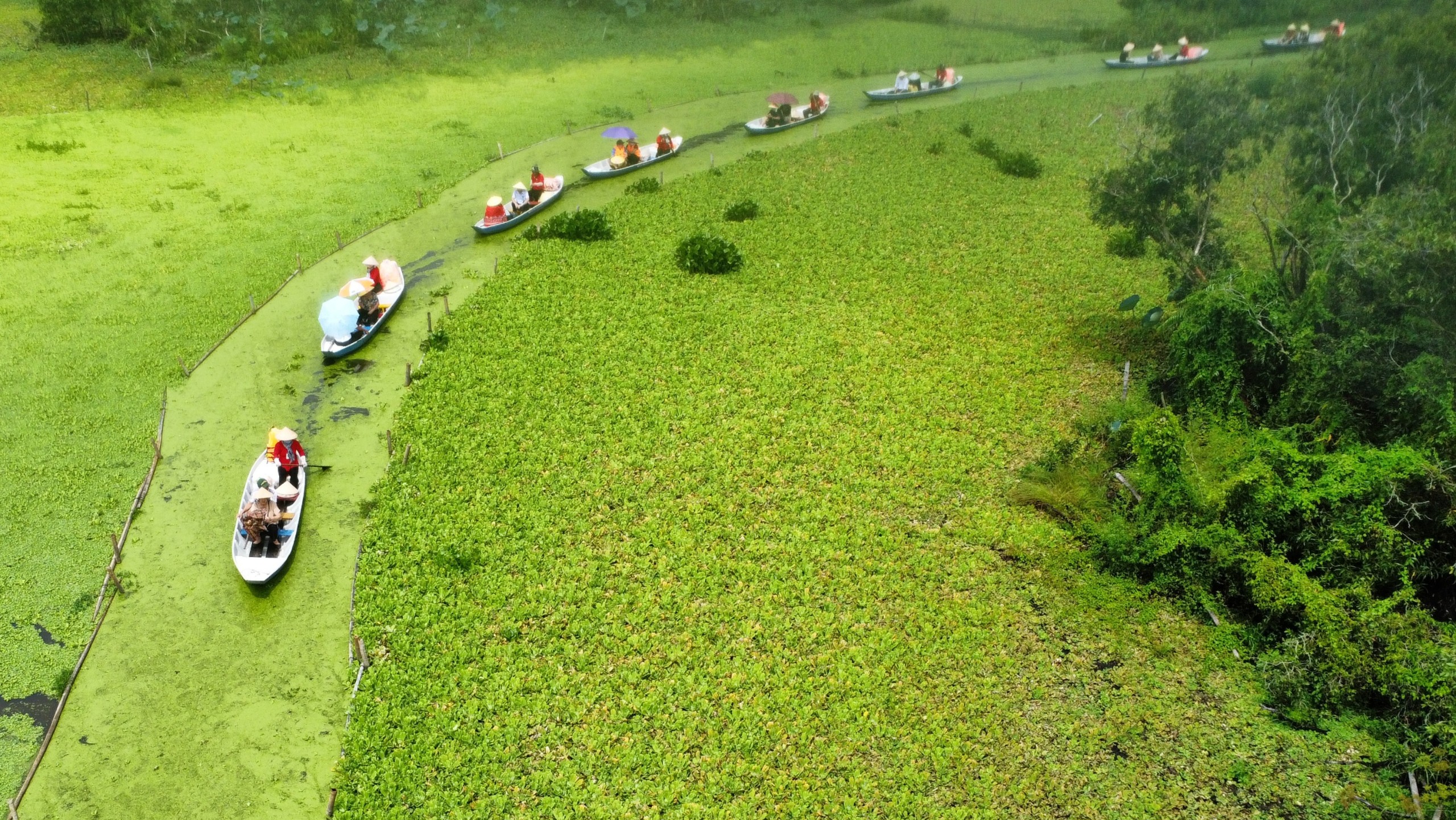
The Mekong Delta is a labyrinth of rivers, swamps, and islands that is home to diverse ecosystems and vibrant local cultures. Eco-tour operators in this region, often part of broader Vietnam ecotourism initiatives, offer unique excursions that allow visitors to experience the beauty of the delta while supporting sustainable practices.
These tours often include canoe rides through mangroves, visits to local farms, and opportunities to engage with communities that rely on the river for their livelihoods. By participating in these eco-tours, travellers contribute to the preservation of this fragile environment and the well-being of its inhabitants.
Phong Nha – Ke Bang National Park: A model for Vietnam ecotourism initiatives
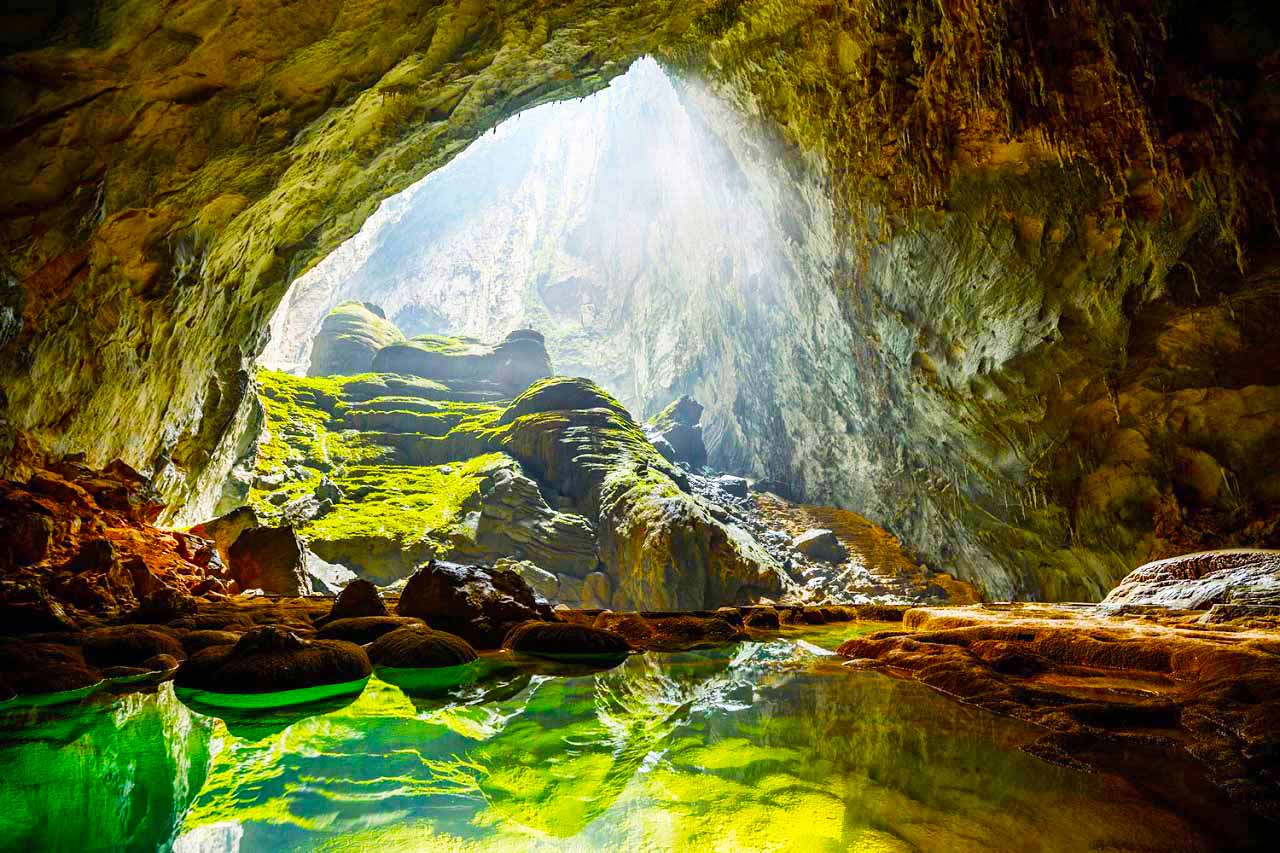
A UNESCO World Heritage Site, Phong Nha-Ke Bang National Park is famous for its spectacular limestone caves and rich biodiversity. Eco-tourism activities here, closely tied to Vietnam ecotourism initiatives, include guided jungle treks, cave explorations, and wildlife watching. Local guides educate visitors about the park’s unique ecosystems and the importance of conservation efforts.
The park has implemented strict regulations to minimize environmental impact, ensuring that tourism does not threaten its delicate habitats. By visiting Phong Nha-Ke Bang, travellers experience the thrill of adventure while also supporting conservation initiatives.
Cat Ba Island and National Park: A case study for Vietnam ecotourism initiatives
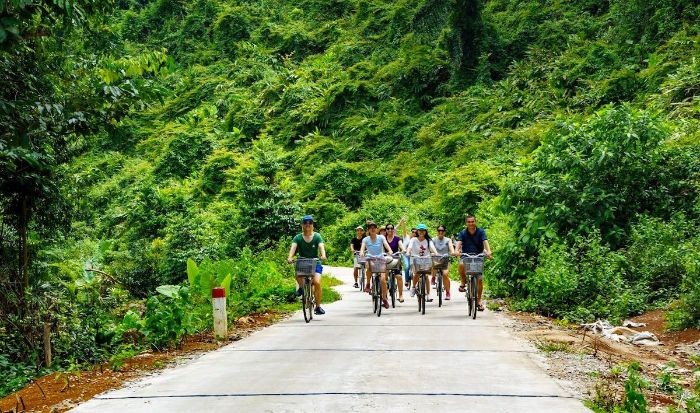
Cat Ba Island, part of the Cat Ba Archipelago, offers a blend of stunning landscapes and eco-friendly tourism. The island is home to a national park that promotes sustainable tourism practices, including kayaking, hiking, and responsible wildlife observation.
Many of these efforts are supported by broader Vietnam ecotourism initiatives, with eco-tours often focusing on protecting the island’s unique flora and fauna, such as the endangered Cat Ba langur. Visitors can explore pristine beaches and lush forests while learning about conservation efforts aimed at preserving this remarkable ecosystem.
Tam Coc-Bich Dong: Halong Bay on Land
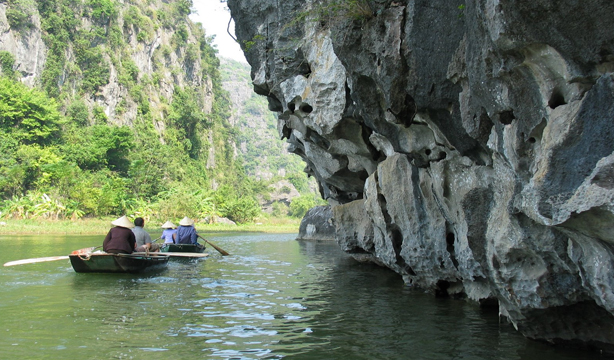
Often referred to as “Halong Bay on land,” Tam Coc-Bich Dong is known for its breathtaking limestone karsts and rice paddies. Eco-friendly boat tours, developed in line with Vietnam ecotourism initiatives, allow visitors to glide through serene waters while taking in the stunning scenery.
These tours emphasize the importance of sustainable practices, providing insights into local agriculture and the ways in which communities coexist with their environment. By supporting local farmers and artisans, tourists contribute to the area’s economic stability while enjoying its natural beauty.
Sapa community – based tourism: A model for Vietnam ecotourism initiatives
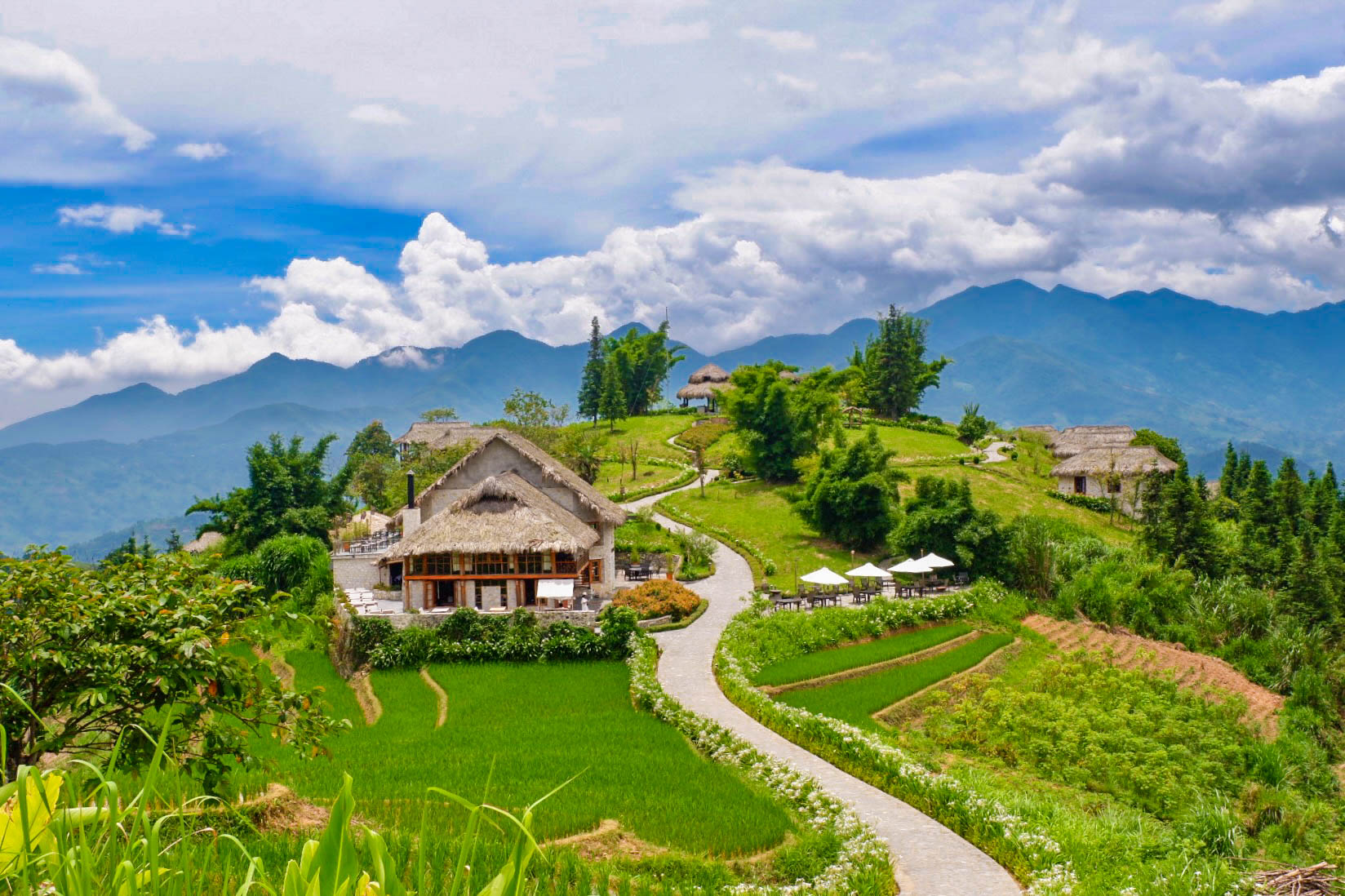
In the mountainous region of Sapa, local ethnic minority groups, such as the Hmong and Dao, have embraced community-based tourism as a way to share their culture and traditions. Homestays and guided treks, often highlighted within Vietnam ecotourism initiatives, offer travellers an authentic experience while ensuring that the economic benefits remain within the community.
Visitors can engage in daily activities, such as farming and weaving, gaining a deeper understanding of local customs. This initiative fosters cultural exchange and empowers communities to preserve their heritage while benefiting from tourism.
Con Dao Islands: A marine paradise
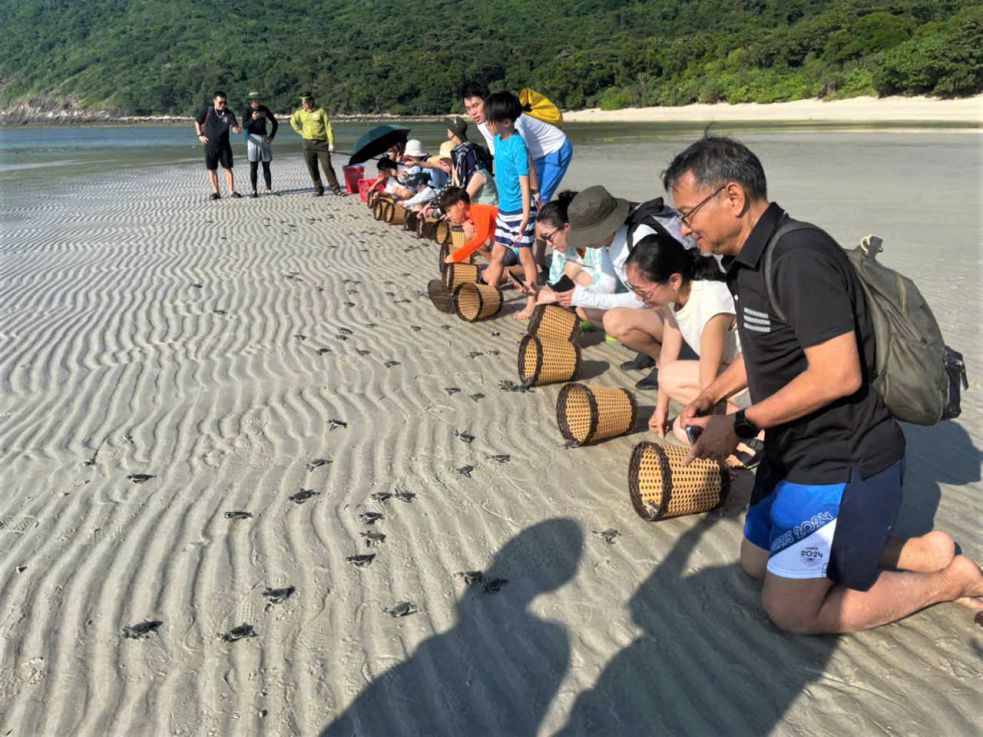
The Con Dao Islands are known for their stunning beaches and vibrant marine life. Eco-tourism initiatives here, closely linked to Vietnam ecotourism initiatives, focus on conservation efforts, including turtle nesting programs and guided snorkelling trips that educate visitors about marine ecosystems.
By participating in these activities, travellers contribute to the protection of the islands’ natural resources and the preservation of endangered species. The islands’ commitment to sustainable tourism helps balance conservation and tourism, ensuring that future generations can enjoy their beauty.
Nha Trang Bay Marine protected area: A key to Vietnam ecotourism initiatives
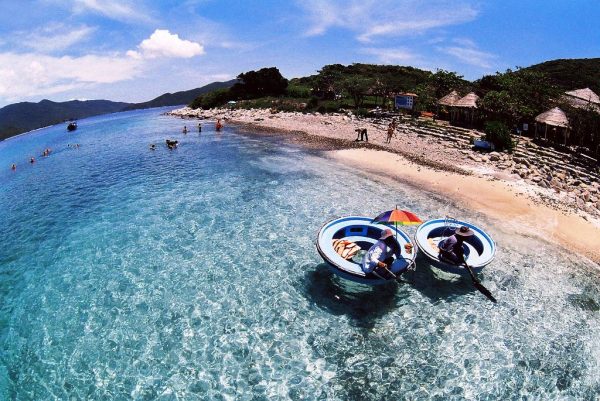
This initiative promotes sustainable diving and snorkelling practices in one of Vietnam’s most beautiful coastal regions. The Nha Trang Bay Marine Protected Area, often highlighted as part of Vietnam ecotourism initiatives, is dedicated to raising awareness about coral reef conservation and marine life protection. Tour operators work with local communities to ensure that tourism activities do not harm the delicate underwater ecosystems. By promoting eco-friendly practices, this initiative helps safeguard marine biodiversity while providing visitors with unforgettable experiences.
Government initiatives and recognition
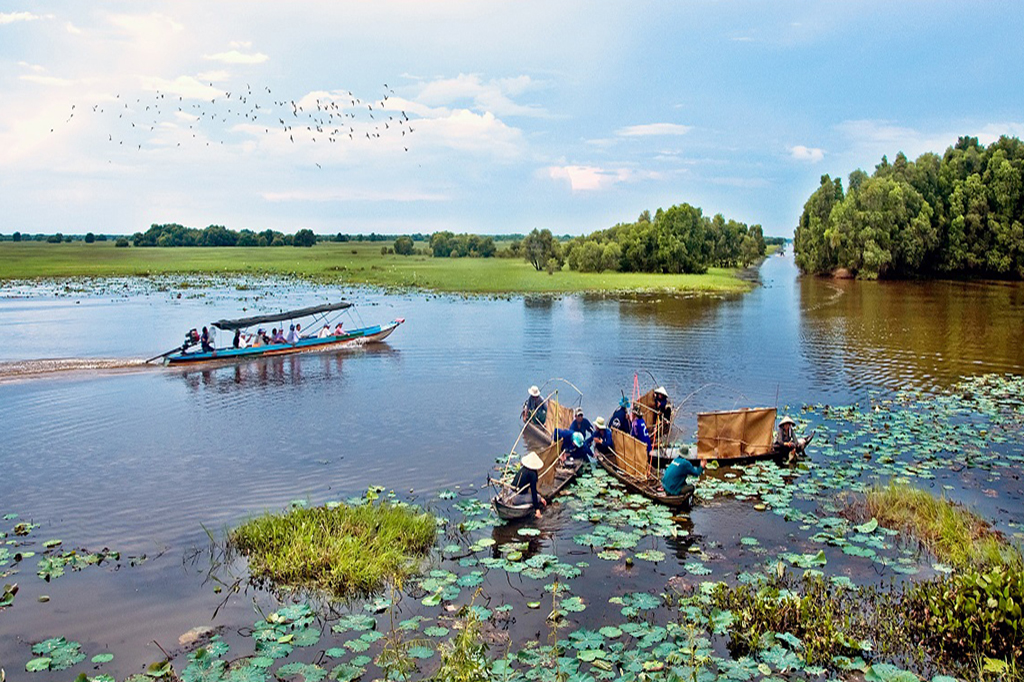
The Vietnamese government has recognized the importance of eco-tourism as a means of promoting sustainable development. Recent initiatives, aligned with broader Vietnam ecotourism initiatives, include the establishment of the Vietnam Ecotourism Association, which aims to develop guidelines and standards for eco-friendly tourism practices. Additionally, the government has launched campaigns to promote eco-tourism regions, such as the Mekong Delta and Phong Nha-Ke Bang, encouraging both local and international travellers to engage in sustainable practices.
Furthermore, the government has collaborated with international organizations to enhance training programs for local communities, equipping them with the skills necessary for sustainable tourism development. These efforts not only protect Vietnam’s natural resources but also empower local populations to benefit economically from eco-tourism.
Conclusion
Vietnam ecotourism initiatives are a testament to the country’s commitment to preserving its natural beauty and cultural heritage. By embracing sustainable travel practices, these initiatives not only protect the environment but also empower local communities. As travellers increasingly seek meaningful and responsible experiences, Vietnam stands out as a premier destination, offering a unique blend of adventure, culture, and conservation.
Ready to explore these beautiful places responsibly? Join our community of explorers in the ExoTrails Facebook Group and follow the ExoTrails Fanpage for daily inspiration and trail tips!
FAQs
What are the best examples of ecotourism in Vietnam?
Excellent examples include the community-led tours in the Mekong Delta, conservation-focused trekking in Phong Nha-Ke Bang, and community-based homestays in Sapa.
How is Vietnam promoting sustainable travel?
Vietnam is promoting it through government support for ecotourism associations, strict regulations in national parks, and the development of community-based tourism models.
What is community-based tourism and where can I find it in Vietnam?
It’s a model where local communities own and operate tourism experiences. Sapa is the most famous example in Vietnam, with its network of ethnic minority homestays.
What is the Vietnamese government doing to protect nature?
The government is establishing marine protected areas, expanding national parks, and creating policies that support sustainable tourism and community-led conservation efforts.
Is Sapa a good example of sustainable tourism?
Yes, its community-based tourism model is a strong example. However, its popularity also presents challenges, making it important for visitors to choose ethical tour operators and homestays.

